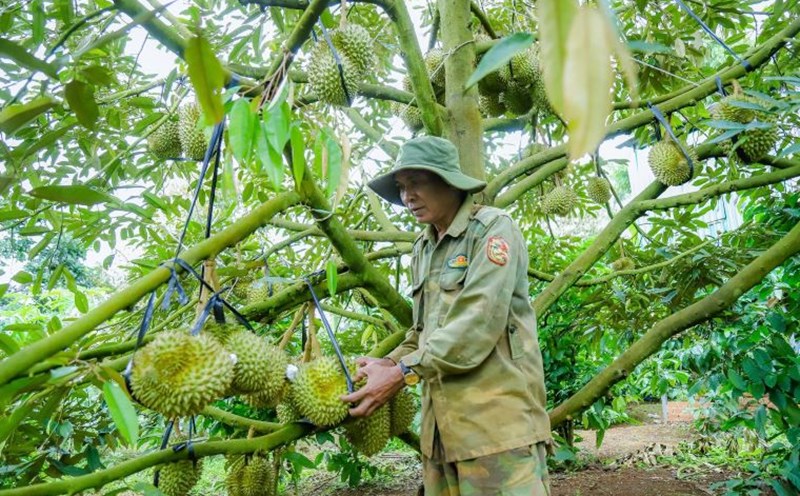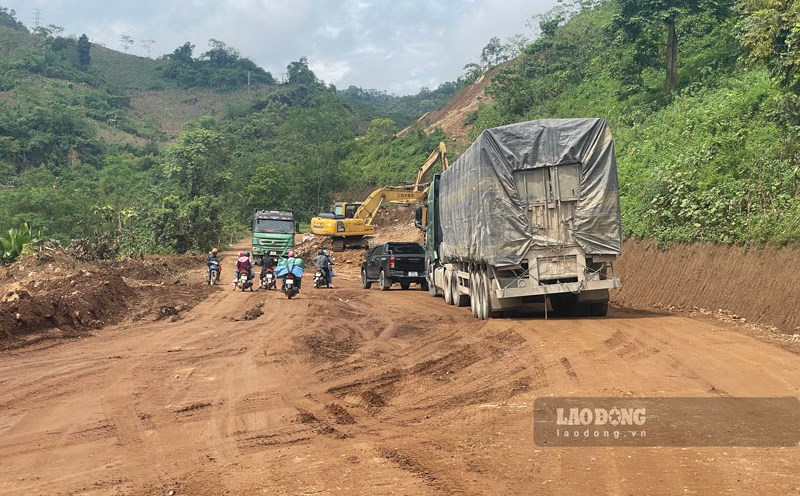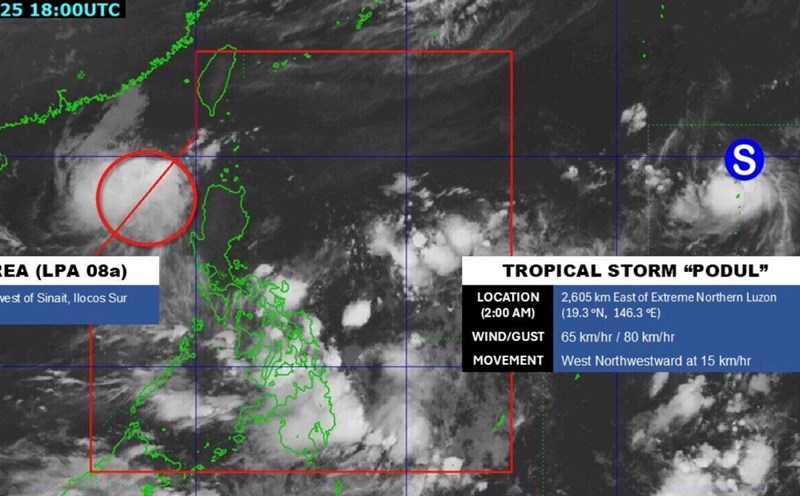No banned substances discovered
Dak Lak - the country's durian capital - is welcoming positive signals in this year's crop. The whole province has nearly 41,000 hectares of durian, of which about 26,600 hectares have been harvested, an increase of 4,000 hectares compared to the previous year.
This year's durian output is expected to reach 392,000 tons, an increase of about 30,000 tons compared to 2024.
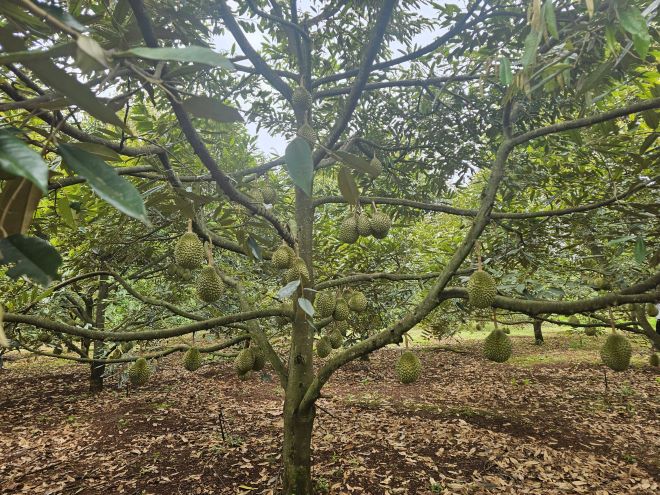
However, the pressure on this locality is not small. Recently, China - the largest market importing durian in Vietnam - has set strict requirements on quality, plant quarantine and banned substance residues.
Since the beginning of the year, many durian trucks in some localities have been returned because they do not meet standards. This directly affects businesses, people and Vietnamese durian brands.
In that situation, the Dak Lak Durian Association and the Central Highlands Institute of Agricultural and Forestry Science and Technology (Wasi) implemented a cooperation program to research and transfer technical advances in durian cultivation in the period of 2025 - 2030.
The main goal of the program is to treat Cadimi and remaining chemicals in the soil; build a set of technical standards for durian in Dak Lak and study plant varieties suitable for local ecological conditions.
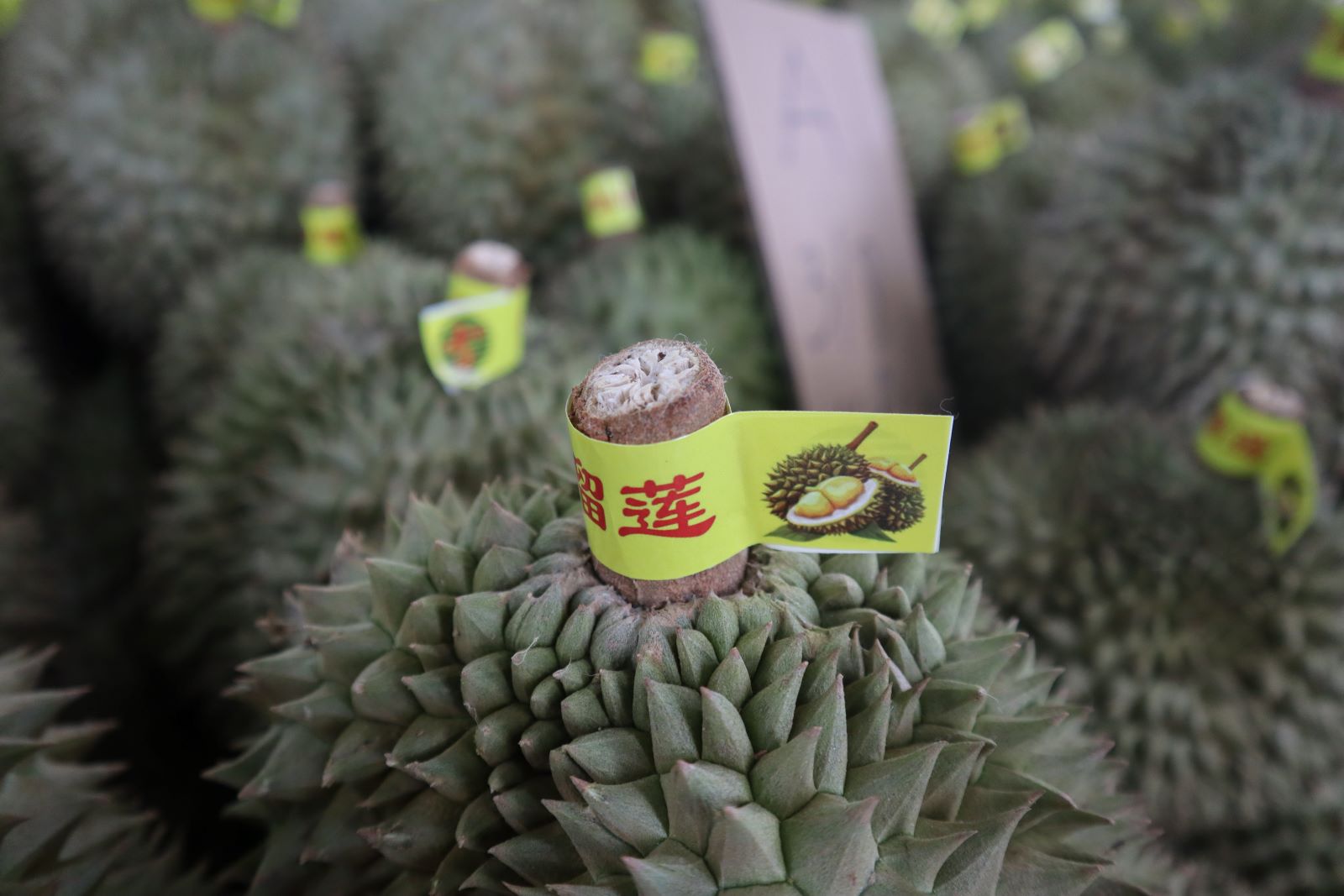
Immediately after the signing ceremony, the parties involved took samples for testing and initially showed positive signals.
Mr. Phan Viet Ha - Deputy Director of the Wasi Institute - said that the test samples showed that Cadimi and O gold were not detected: "We are developing a set of technical standards from cultivation to export, to develop sustainably and ensure products are even in quality".
Promoting the opening of "green channels"
In about 10 days, Dak Lak will enter the durian harvest season. This is an important time for both growers and traders in the agricultural sector.
Many businesses are actively cleaning and sanitizing warehouses to prepare for durian gathering and official export to China.
This preparation helps ensure food hygiene and safety and especially eliminates leftover substances, avoiding affecting durian.
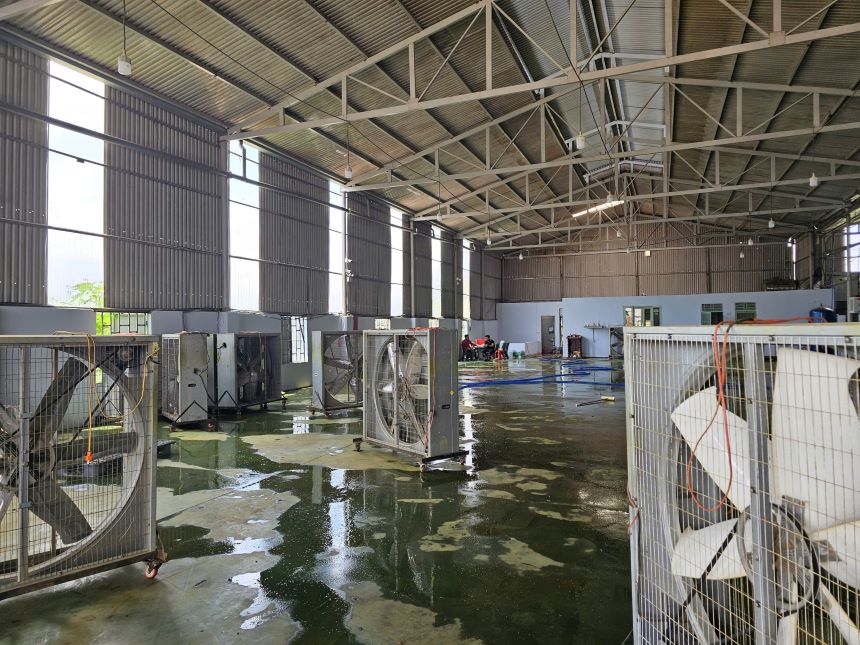
Ms. Tran Thi Yen Thu - Director of Hong Sang Fruit Company Limited - said that she has cleaned the warehouse to remove impurities that can affect durian.
According to Ms. Thu, this year Dak Lak enters the harvest season more than 20 days later. The purchase price at the garden decreased slightly to 60,000 VND/kg for type A, while last year this type was priced at 80,000 VND/kg.
"China's durian consumption demand is expected to increase in early September, bringing higher prices. Therefore, Dak Lak entering the main crop later than usual this year is also a blessing" - Ms. Thu shared.
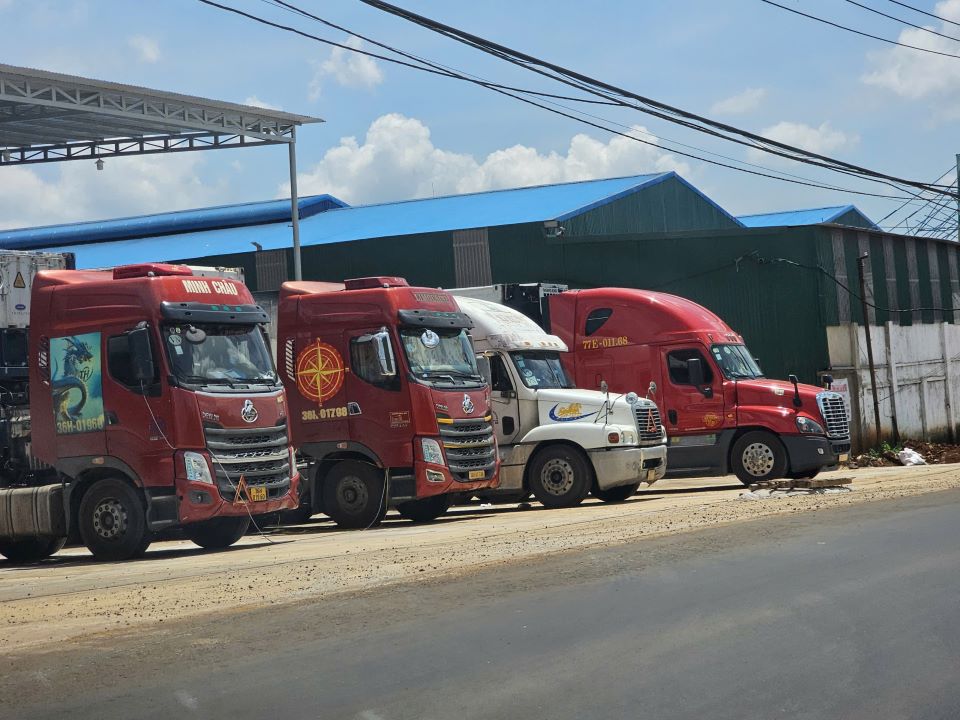
Mr. Le Anh Trung - Chairman of the Dak Lak Durian Association - said that the Provincial People's Committee has assigned units to implement quarantine procedures and customs declarations right at the raw material area, creating conditions for easier trade.
This not only helps simplify the export process but also ensures that the province's durian products meet the highest quality standards before reaching consumers.
The creation of a "green channel" will help trade between Vietnam and the Chinese market become more favorable, reducing waiting time and trade barriers.
Thanks to that, businesses and farmers can be more confident in producing and supplying durian, thereby increasing the economic value of the product.
Mr. Trung emphasized that support from the government and close cooperation between relevant parties are very necessary for the durian industry in Dak Lak to develop sustainably in the future.
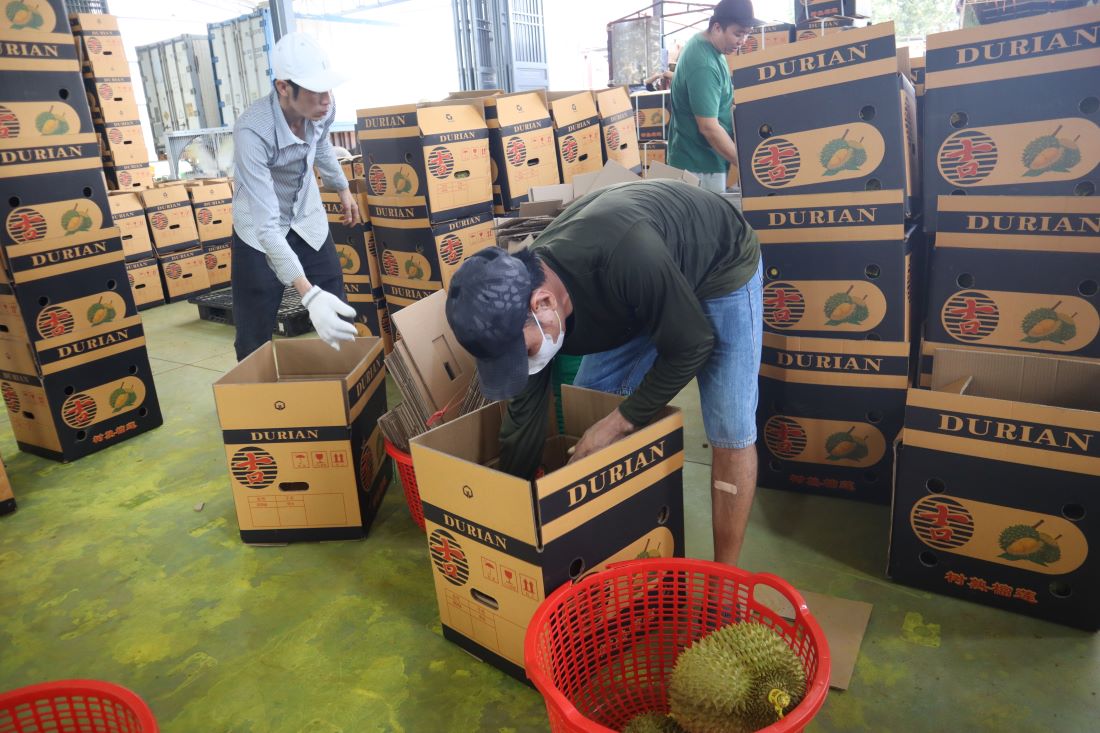
Mr. Nguyen Thien Van - Vice Chairman of Dak Lak Provincial People's Committee - said that he has assigned the Durian Association and relevant departments and branches to develop a plan to test durian quality on the spot.
The plan includes the establishment of a laboratory designated by China Customs to check durian quality separately and ensure that the product is free of banned substances.
If the process is successfully implemented, the shipments will no longer have to go through inspection in the border area between Vietnam and China. This helps shorten travel time and bring products to consumers more quickly.
The Vice Chairman of the Dak Lak Provincial People's Committee emphasized that localities need to develop large-scale growing areas.
To achieve this, it is very important to proactively link people and businesses, in order to form sustainable production and consumption chains.
The province will support training in science and technology to create effective linkages. At the same time, the province will resolutely direct the complete elimination of the use of banned gold in durian production.
All packaging and processing facilities and people need to strictly comply with these regulations to develop the durian industry stably and sustainably.



